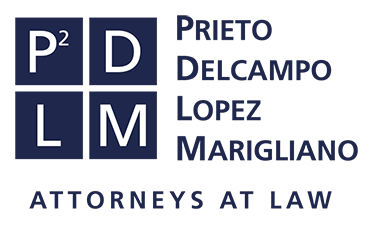Taking care of your elderly loved ones is an important responsibility that requires difficult decisions and consumes significant time, energy, and money. Deciding to place your family member in a nursing home or assisted living facility can be hard, especially when you’re concerned about finances.
Luckily, there are options available to help you cover these costs, including Medicaid and its associated programs. While this guide provides information about how Medicaid programs can help cover these costs, you should consult a lawyer and a Medicaid expert for guidance and legal advice based on your specific situation.
What Is Medicaid-Funded Assisted Living?
Medicaid rules, including requirements for qualifying and what expenses are covered, vary from state to state. In Georgia, Medicaid can cover nursing home costs for those who qualify, but it doesn’t directly cover home care or assisted living costs.
However, the Elderly and Disabled Waiver Program (EDWP) allows individuals who otherwise qualify for Medicaid to receive financial support for assisted living facilities or home care services.
What Are the Requirements for the EDWP?
Below is a summary of the basic requirements an individual must satisfy to qualify for EDWP and coverage of assisted living costs. Each situation is different, so it is important for you to discuss these issues with an expert who can provide guidance based on your specific situation.
Financial Requirements
- Supplemental Security Income (SSI): SSI recipients automatically qualify for Medicaid and EDWP.
- Income: To qualify for Medicaid (and consequently EDWP), an individual’s income must be below the Federal Poverty Level (FPL). Whether an individual meets this criteria depends on numerous factors such as the type of care needed and marital status. FPL typically falls in the range of $1000–$3000 a month. This table shows how income impacts the ability to receive these benefits.
- Assets: The amount of an individual’s personal assets is considered when determining whether the individual will qualify for EDWP benefits. As with income, marital status, and the type of care needed are qualifying factors. For example, a married person needing nursing home care can not have more than $3,000 in personal assets, whereas an unmarried person can not have more than $2,000 in personal assets. However, it is important to note that only certain types of assets are considered in this assessment, so be sure to work with a qualified Medicaid representative.
- Look-Back Period: When evaluating whether an applicant meets the asset threshold, the assets considered include a Look-Back Period. This means the assessment does not just look at current assets but rather evaluates personal assets over a 5-year period and further evaluates the sale or transfer of assets during that time period. This includes the gifting or giving away of assets as well as sales. If applicants sold or gifted too many assets within the Look-Back Period, they may not qualify.
Again, this is a general summary of some of the factors considered in evaluating an application for Medicaid and EDWP in Georgia. There are many exceptions and additional programs that may apply to you depending on your circumstances.
Functional Requirements
- Level of Care: To qualify for EDWP, an individual must be evaluated by a medical professional and must require at least the intermediate nursing home level of care.
- Need for Services: They must also be able to show that, without assisted living or home health services, they would need to live in a nursing home.
- Physical Impairment: EDWP applicants must have some form of physical impairment or disability that necessitates additional care.
Other Requirements
- Age: To qualify for EDWP, individuals must be 65 years or older. However, if they have certain physical disabilities, they do not have to meet this age requirement.
- Citizenship: Medicaid and EDWP recipients must be citizens or qualified non-citizens of the US.
- Residency: To receive Medicaid or EDWP support in Georgia, an individual must be a current Georgia resident.
What is the Out-of-Pocket Assisted Living Cost?
In Georgia, the assisted living cost can vary depending on the level of care required and the area of the state you live in. According to ElderLife Financial reports, these costs tend to range from $2000 to $5000 per month. Such additional expenses can be a significant financial burden, which is why it’s so important to learn about options like EDWP to secure additional support.
PDLM: Support When You Need It Most
In addition to these financial considerations, it is important to ensure your loved one is receiving the highest level of care and is physically and emotionally safe in the facility you have selected. To ensure their rights are protected and they are well cared for, you need a reliable lawyer on your side.
At PDLM, we take the care of your loved one seriously. Our job is to make sure their needs are met and their rights are protected. We will fight back against any mistreatment to allow you to focus on caring for yourself and your family. Please contact us if you have questions about nursing home abuse or the rights to which your loved one is entitled. We’re here to support you.

